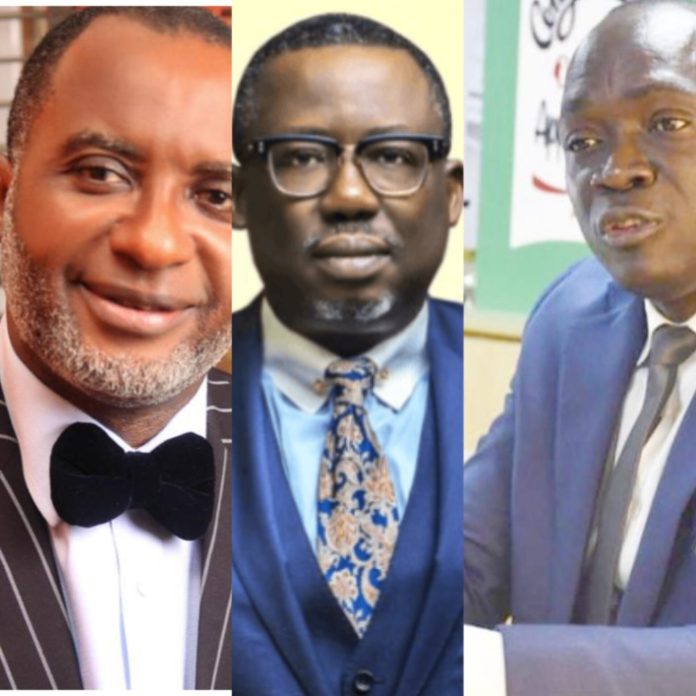Miracle Akubuo
On Thursday, 6th of July, Tinubu signed four executive orders on deferring and suspending the commencement of certain taxes paid by individual companies in the country.
This new policy was a result of a complaint lodged by ThisDay newspaper, stating taxation as one of the major problems that needed an urgent solution. Dele Alake, special advisor on special duties communication and strategy, announced the development while briefing the state’s correspondents.
These four executive orders were intended to reduce the high taxes affecting the economy. However, the first order is the Finance Act Order of 2023, which has now deferred the commencement date of the changes contained in the act from May 23, 2023, to September 1, 2023, to ensure adherence to the 90 days minimum advance notice for tax changes, as contained in the 2017 National Tax Policy.
Also, the Customs Exercises Tariff Amendment Order of 2023, which has also shifted the commencement date of the tax changes from 27, 2023, to August 1, 2023, is in line with the National Tax Policy.
The Harbinger gathered that the president has given an order suspending the 5 percent excise tax on telecommunication services, as well as the excise duties escalation on locally manufactured products.
Experts disclosed the impacts of the Four Executive Orders on Nigeria’s business enterprise
The president of the Manufacturers Association of Nigeria (MAN),Francis Mashinoye, described the development as a laudable step and one that will go a long way in easing the tax burden on manufacturers.
Mashinoye, however, urged the government to clarify its position on the rate hike on tobacco products, which was introduced into the Finance Act.
Moreso, Segun Ajayi-Kadir, the Director of the Manufacturers Association of Nigeria (MAN), said, “The unwarranted and clearly disingenuous escalation of excise and introduction of new taxes in the 2023 fiscal policy measures needed to be discarded, and President Tinubu has just done the right thing, and we commend him.” He added that existing manufacturers in the affected sector are pleased, and we can now reconnect with our projections and plans made at the beginning of the year.
In his own perspective, Dele Kelvin Oye, the president of the Nigeria Association of Chamber of Commerce, Industry, Mines, and Agriculture (NACCIMA), urges the federal government in a report to continue to engage with the stakeholders and implement policies that are business-friendly and promote sustainable economic growth.
He added, “We believe that the private sector is essential to achieving the government’s goal of higher GDP growth and reducing the unemployment rate through job creation.”
Gabriel Idahosalt, Deputy President of the Lagos Chamber of Commerce and Industry, described the move as a temporary relief that would provide some breathing space for manufacturers to review their plans to deal with the changes.
Prof Uche Uwaleke, president of the Association of Capital Market Academics of Nigeria, ACMAN, revealed that the recently signed executive orders represent a welcome development as they will no doubt enhance the business environment and consequently improve the country’s ranking in the ease of doing business. It will also help to moderate the increase in inflation. He continued by saying the suspension of the proposed import tax adjustment levy on certain vehicles and the excise tax on telecommunication and other locally manufactured products will help moderate the rising inflation and increase productivity.
David Adorni, the Vice Executive Chairman of the Board of High Cap Securities Limited Lagos, said, “I don’t have details yet on the reversal. However, President Buhari was known for acting because of parochial reasons rather than for the national interest. So far, President Tinubu is pursuing an economic crusade for a market-dominated economy that favors investment. No doubt, it will help reduce some cost of production and moderate rising inflation.”
Abiola Sanni at the University of Lagos, in an interview with Channel Television on Sunday, said, “President Bola Ahmed Tinubu’s decision to suspend the 2023 Financial Act, telecommunication import, and other taxes has shown the highest political will to improve Nigeria’s business environment.” He continued by saying the tax and fiscal policy expert noted that Tinubu’s four executive orders to suspend arbitrary taxes would bring short-term reprieve for shareholders in the nation’s economy. He advised that some aspects of the Finance Act, such as telecoms tax, should be abolished.
Godswill Akpabio, the Senate president, also assured foreign investors of the safety of their investments in Nigeria.
Akpabio restated the commitment of President Bola Ahmed Tinubu’s government to providing a conducive business environment for foreign investors in the country.
Muda Yusuf, the director of the Center for the Promotion of Private Enterprise (CPPE), commended Tinubu’s four executive orders, stating that they brought instant relief to manufacturers in Nigeria. He noted that the four executive orders indicated that Tinubu is sensitive to the plight of businesses and Nigerians.
Adewale Smart Oyerinde, NECA’s Director-General also disclosed the impact of the development in an interview with Channels TV.
He said the order would prevent businesses, especially small and medium enterprises, from collapsing. In his words, the executive order would allow organized businesses to constructively dialogue with the government on some of the defects of the 2023 Finance Act. It will not stop the whole issue but has temporarily stopped the business economy from sliding and has allowed businesses to engage the government on the matter constructively.
He however noted that Tinubu has set up a committee headed by fiscal policy partner and Africa Tax leaders at PWC, Taiwo Oyedele, to develop better tax reforms nationwide.




